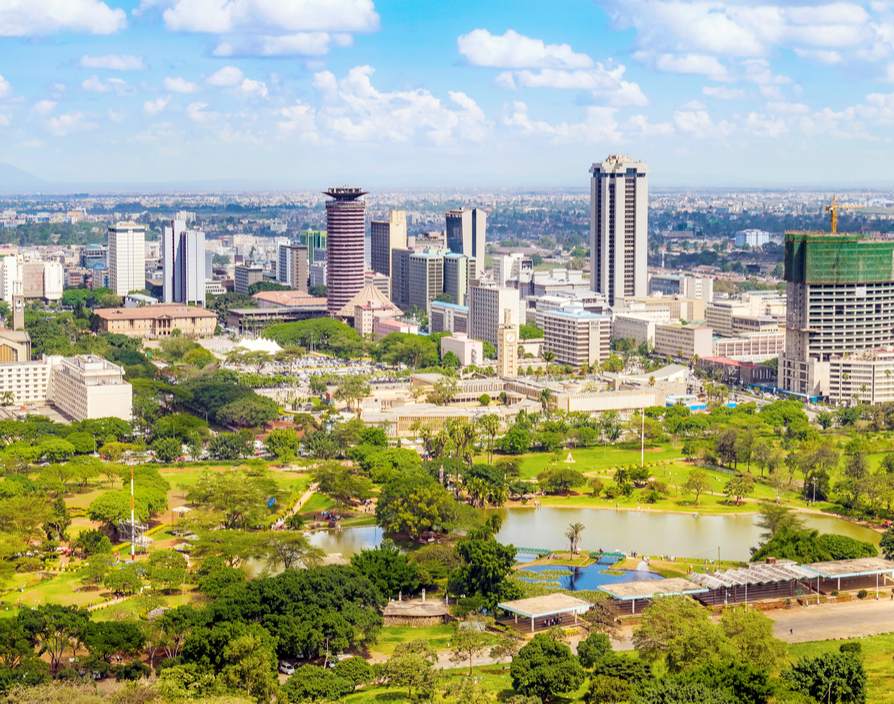Even though it’s the home of some truly renowned coffee, few would believe Kenya commands the clout to be an attractive startup nation. However, they may have reason to change their minds. The country attracted VC investments worth $82.86m in the first six months of 2018 – almost half of the $168.6m total injected in the continent over the same time – according to Weetracker, the technology media platform. Clearly something big has earned the nation the soubriquet Silicon Savannah.
This is especially impressive given the country’s long history of political turmoil harming its economy. While Kenya’s finances had been shaky at best since the republic claimed its independence from the Brits in 1963, things went from bad to worse after the nation’s tumultuous 1992 election was marred with corruption allegations and claims of widespread racially-targeted violence. The chaos combined with poor harvests and international donors withholding funds resulted in record-high inflation levels of 46% in 1993. But the economy improved slightly after the country liberalised market regulations and with things like securing a $150m Poverty Reduction and Growth Facility loan from the International Monetary Fund in 2000, the nation was quickly moving towards becoming a friendlier place for entrepreneurs. “Irrespective of Kenya’s political history, today it has a very strong entrepreneurial spirit and many startups have adopted a modern and western outlook on business,” says Paul Randall, executive director of Coremetrix, the risk management company.
Indeed, one of the initial signs something big was about to happen in Kenya dates back to 2006 when the government introduced the nation’s first undersea fibre optic cable – The East African Marine System – and made digital transfers possible. “Mobile money revolutionised how people move money, save, get loans and even make payments,” says Brian Mwiti Mwenda, CEO of Hope Tech Plus, the healthtech startup. “This gave rise to so many opportunities around fintech, most of them powered by mobile money.” In the years since, Kenya has solidified a reputation of being a pioneer in offering people equal opportunities – getting a loan is just minutes away for most Kenyans. “Many people in Kenya can’t imagine a world without mobile money – it’s God’s gift to us,” Mwiti Mwenda adds.
Another key moment came when Vodafone launched M-Pesa, the mobile-based money transfer service, in 2007 for Kenya’s mobile network titans Vodacom and Safaricom. “M-Pesa has transformed the thinking around what people are able to do online,” says Eric Thimba, CEO of MOOKH, the e-commerce platform enabling sellers to easily set up their own online stores. Comprising 81% of Kenya’s mobile transaction market shares in 2016, M-Pesa was the trailblazer of Kenyan fintech to say the least. “It’s opened up a whole new world of possibilities in terms of being able to collect payment,” Thimba argues.
It encouraged startups like Thimba’s to service the country’s huge working class, known as the Jua Kali, which before desperately lacked formal financial access. “[They’ve] been called Jua Kali for the longest time because it means fierce sun,” Thimba explains. “So it’s all these guys who work in the hot sun for this informal sector that employs a lot of people.” Some even argue it’s replaced the traditional banks and financial services. “I think the normal financial structures that exist are no longer relevant to the needs of businesses now,” Thimba continues.
And it’s not just the Jua Kali that’s benefitted from easier access to capital – so have the country’s entrepreneurs. “As with other emerging economies, a high percentage of Kenyan startups fail within the first three years of operations with working capital identified as one of the key issues as the main reason for failure,” Randall says. But thanks to the rise of these alternative lenders, new ventures have an easier time sourcing money. “Entrepreneurs who previously struggled to obtain formal finance due to a lack of credit history now have an opportunity to benefit from mobile lending solutions,” Randall argues.
While fintech is the nation’s crown jewel, it’s not the only sector that shines in the country. “Kenya’s startup scene is one of the most attractive in the continent, drawing entrepreneurs from all spaces with healthtech, fintech and agritech being given major emphasis,” says Mwiti Mwenda. Indeed, four Kenyan-based companies adorn the continent’s top ten investments this year. And from CDC Group securing $10m for solar energy company M-kopa to True Ventures leading a $5m seed round for agritech startup WeFarm, it speaks volumes about Kenyan tech as a whole. “Entrepreneur communities are cropping up everywhere – they just meet to discuss challenges and encourage each other,” Mwiti Mwenda continues.
Given the massive growth of the startup sector, it’s hardly surprising that VC firms are eager to invest in the country. “I see a lot of African-focused funding coming to Kenya,” says Mwiti Mwenda. “Most of this funding is sector-focused [so we’ll] see more startups coming up in fintech, agritech and healthtech.” While it’s yet to sport unicorns on its plains, Kenya saw a 58.57% funding increase between 2016 and 2017, according to Partech Ventures, the global investment firm. This culminated in May this year when The Rise Fund, the investment firm, led a $47.5m series C round for Cellulant, the Kenyan digital payment scaleup.
VCs aren’t the only ones being lured by the opportunities on the Silicon Savannah. Over the past few years there have been several initiatives to support the emerging startup nation. “Big companies are now looking to help and work with fintech innovators on the continent simply because they recognise the banks are slowly losing relevance,” Thimba says. Indeed, Kenya has seen 30 tech hubs of either accelerators, incubators or innovation centres open since 2016, according to GSMA, the trade body. And with 25 of them being in Nairobi, the country’s capital is the continent’s third best catered to city in terms of tech hubs. Moreover, several foreign organisations and nations have actively supported the growth of the Kenyan startup ecosystem. For instance, Visa’s Everywhere Initiative, the global innovation programme challenging startups to solve payments and commerce issues with the chance to secure $50,000, came to Sub-Saharan Africa for the first time in 2018. And it’s hardly surprising that Kenyan MOOKH won the top gong. “I think Kenya’s in that economic space right now where generally we’ll see more of these initiatives,” Thimba says.
Britain’s one of the countries that has been signalling its more than happy to branch into the Silicon Savannah. Who could forget prime minister Theresa May’s infamous dancing moves on a Kenyan trade mission in August 2018? Elsewhere, Scott Russell, CEO of Paddy & Scott’s, the coffee company, has benefitted from the government’s enthusiasm first-hand when he was looking to start growing coffee in the country. “I was just impressed with the support from the Department of International Trade (DIT),” he recalls. On top of helping with research and travel grants, the DIT also introduced Russell to the Kenya High Commission. And he’s certain foreign initiatives are more than welcome by the Kenyan government. “I think they want to showcase to the world that Kenya’s open for business and that it can compete and operate with European countries,” Russell explains.
In fact, Kenya’s leadership has been pulling out all the stops to foster the economy’s fresh direction. “The government has started to appreciate the potential of startups in shaping the future of the economy,” Mwiti Mwenda says. Indeed, last year Kenyan president Uhuru Kenyatta unveiled his Big Four plan. As well as adjusting budgetary sights for manufacturing, food, healthcare and housing to realise Kenya Vision 2030, the agenda also commits £167.2m to developing information communication technologies. Moreover, the last five years saw nationwide rollouts of fibre optic broadband. The government’s clearly been putting its money where its mouth is.
However, it’s not all sunshine and roses. With Kenya’s traditional banking infrastructure not up to scratch, it’s tough for startups to clear credit checks and enjoy formal loans. “This is typically down to local financial institutions not having the infrastructure in place to accurately score a citizen’s creditworthiness,” says Randall. As a result, lenders often demand high security before dishing out loans. “With a limited or no credit rating, taking the first step on the credit score ladder is extremely difficult,” he continues.
Moreover, political drama still saps the coffers of businesses and even threatens economic fallout. As a case in point, after losing last year’s election Kenya’s opposition coalition, the National Super Alliance (NASA), drummed up economic boycott against all companies aligned with the new government. And after marching into a busy phone shop, NASA’s leader Raila Odinga not only boycotted but accused Safaricom of fiddling electronic ballots while wiring election results to the electoral commission. “On the flip side though, this negative publicity worked well for these companies with some reporting the highest profit margins ever,” Mwiti Mwenda says.
So what’s next for the country? If, as one would optimistically predict, Kenya’s government keeps encouraging startups with tech initiatives and the country avoids political earthquakes, then the Silicon Savannah is set to flourish. “My prediction is that in the next five years Kenya will have the most attractive space not only for startups but businesses,” Mwiti Mwenda bullishly concludes. “Watch this space.” ![]()
Share via:








































